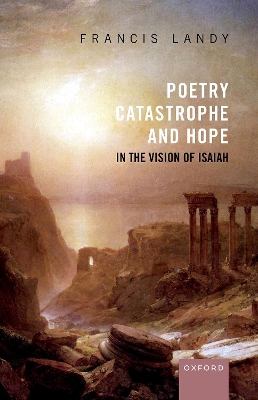The book of Isaiah is one of the longest and strangest books of the Hebrew Bible, composed over several centuries and traversing the catastrophe that befell the two kingdoms of Israel and Judah in the 8th and 6th centuries BCE. Francis Landy's book tells the story of the poetic response to catastrophe, and the hope for a new and perfect world on the other side. The study traces two parallel developments: the displacement of the Davidic promise onto the Persian
Empire, Israel, and the prophet himself; and the transition from exclusively male images of the deity to the matching of male and female prototypes, whereby YHWH takes the place of the warrior goddess.
Utopia, Catastrophe, and Poetry in the Book of Isaiah consists of close readings of individual passages in Isaiah, commencing with Chapter One and the problems of beginning, and ending with Deutero-Isaiah, composed subsequent to the Babylonian exile. The volume is arranged thematically as well as sequentially: the first chapter following the introduction concerns gender, the second death, the third the Oracles about the Nations. At the centre there is what Landy calls 'the constitutive
enigma', Isaiah's commission in his vision to speak so that people will not understand. This renders the entire book potentially incomprehensible; the more we try to understand it, the greater the difficulty. For Landy, this creates a model of reading and writing, the challenge and the risk of going up blind
alleys, of trying to make sense of a disastrous world. Isaiah's commission pervades the book. Throughout there is a promise of an age of clarity as well as social and political transformation, which is always deferred beyond the horizon. Hence it is a book without an ending, or with multiple endings. In the final chapters, the author turns to the central Chapter Thirty-Three, a mise-en-abyme of the book and a prayer for deliverance, and the issues of exile and the possibility of return. Like
every poetic work, particularly in an era of cultural collapse, it is a critique of the past and a hope for a new humanity.
- ISBN10 0198856695
- ISBN13 9780198856696
- Publish Date 18 May 2023
- Publish Status Forthcoming
- Publish Country GB
- Imprint Oxford University Press
- Format Hardcover
- Pages 480
- Language English
